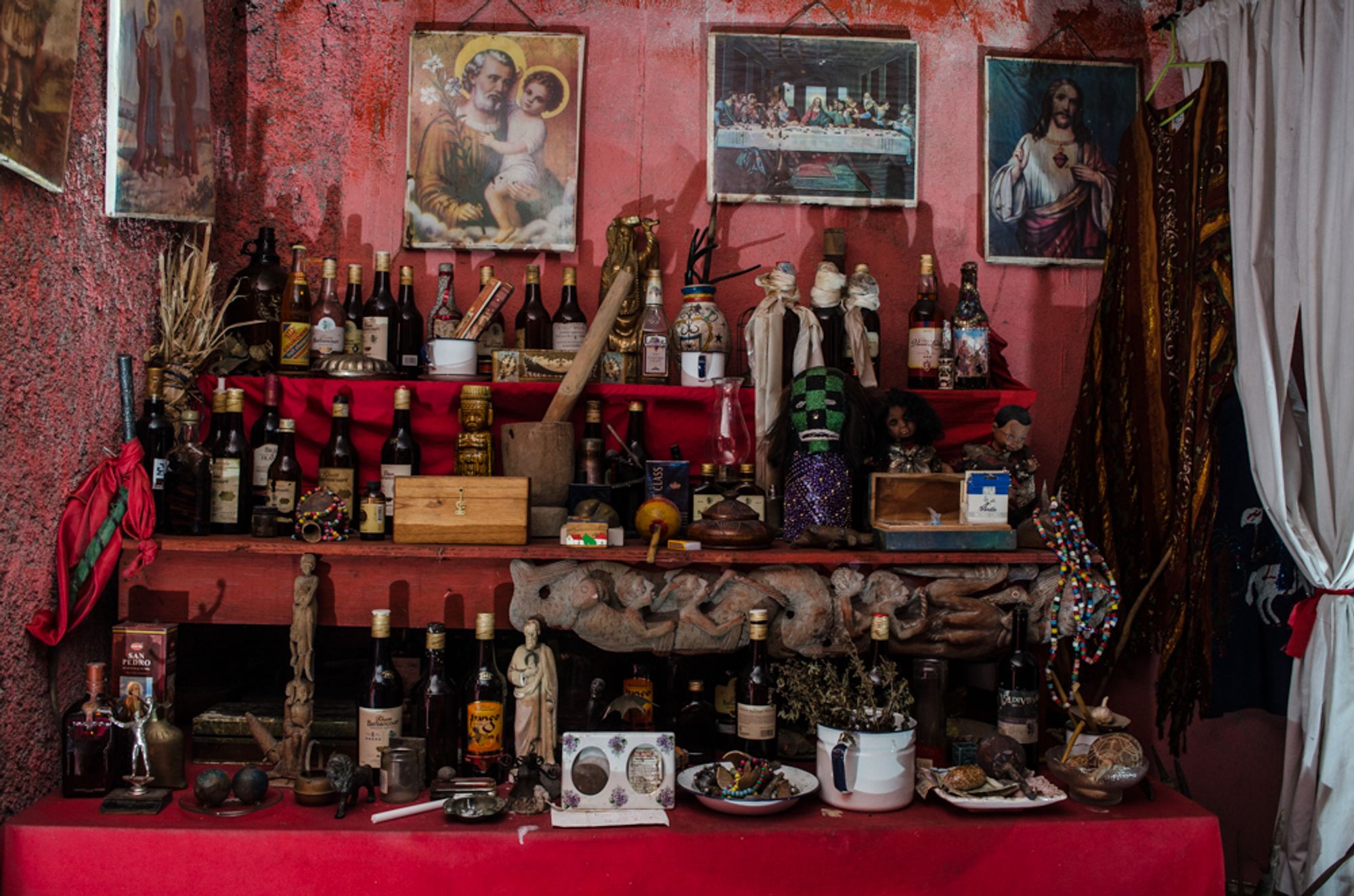
Vodou and Visual Art Roundtable—Beyond Syncretism, Vodou is Creolization!
In this roundtable led by Oungan (Vodou Priest) Jean-Daniel Lafontant, participants will contextualize the current exhibition PÒTOPRENS: The Urban Artists of Port-au-Prince by shedding light on syncretism, creolization, and Vodou as a culture adapted to a world of diversity and multiculturalism.
Vodou is a process in which multiple cultures, traditions, practices, religions, rites, and languages were synthesized, emerging in the “New World” partly as a result of colonization. This incessant mixing among people of indigenous, African, Asian, and European descent incited a cultural fusion and ultimately led to the formation of new identities, or creolization. Vodou is not a forced phenomenon; rather, it is a natural process that occurred in the most adverse and horrendous conditions. For many, Vodou allowed the oppressed to shed their European inferiority complex by mixing knowledge from multiple kingdoms and regions of the African continent and by appropriating the European master’s utmost power, its religion and magical tradition. As the foremost element of creolization, Vodou may be the secret for the stability of a world forever gentrifying. As Vodou is the conjunction of many, transformed into one, it may become the ideal culture for the new world order of diversity.
Jean-Daniel Lafontant is a Oungan (Vodou priest) and a founding member of Temple Na-Ri-VéH in Haiti. He is also the founder of ANAE (1987), a New York-based association specializing in the cultural promotion of Haitian art influenced by Vodou. He serves as a board member for Le Musée d’Art Haïtien and also as Executive Director of the Haitian Cultural Foundation. In the last 4 years he has produced and been featured in a handful of documentaries, articles, and publications on Vodou and the art and culture of Haiti, including the acclaimed documentary In the Eye of the Spiral and the CNN series The Believers. Lafontant is a U.S.-educated Communications and Financial professional who was very active in developing the credit card business of Haiti and later contributed in placing Western Union in the lead position of the remittance business in the country. A few months after Haiti’s devastating earthquake in 2010, he joined the humanitarian sector and served as Head of Communications for the Haitian Ministry of Foreign Affairs. Through his work as a Spiritual Healer, diplomat, and cultural specialist, Lafontant has worked with diverse institutions promoting a global understanding of the multifaceted nation of Haiti and its diaspora.
Kyrah Malika Daniels is Assistant Professor of Art History, African & African Diaspora Studies, and Theology at Boston College. Her research interests and course topics include Africana religions, sacred arts and material culture, race, religion and visual culture, and ritual healing traditions in the Black Atlantic. Her book manuscript (When the Spirit is Ill, in progress) is a comparative religion project that examines key ritual art objects used in healing ceremonies to treat spiritual illnesses and mental health conditions in Haiti and the Democratic Republic of Congo.
Between 2009-2010, Kyrah served as Junior Curator at the Smithsonian Institution’s National Museum of American History in Washington, D.C. Following the earthquake of 2010, she worked in St. Raphael, Haiti with Lakou Soley Academic and Cultural Arts Center, a grassroots organization that develops arts-based pedagogy. Her work has been published in the Journal of Africana Religions, the Journal of Haitian Studies, and the Journal for the American Academy of Religion. She completed her B.A. in Africana Studies (Stanford University), an M.A. in Religion (Harvard University), and received her Ph.D. in African & African American Studies (Harvard University).
Dr. Nixon Cleophat, Associate Professor at Bloomfield College, holds a Ph.D. in Systematic Theology and Social Ethics at Union Theological Seminary at Columbia University; and earned a Master of Divinity (M.Div.) at Harvard University. His research focuses on indigenous religions, including African-derived Caribbean religions such as Haitian Vodou, systematic and constructive theologies such as Black Theology, womanist and feminist theological ethics, queer theory, pneumatology, and Pan-African critical studies. He has co-authored Critical Approaches to Religion (2018), and co-edited Vodou in Haitian Memory (2016), and Vodou in the Haitian Experience (2016).